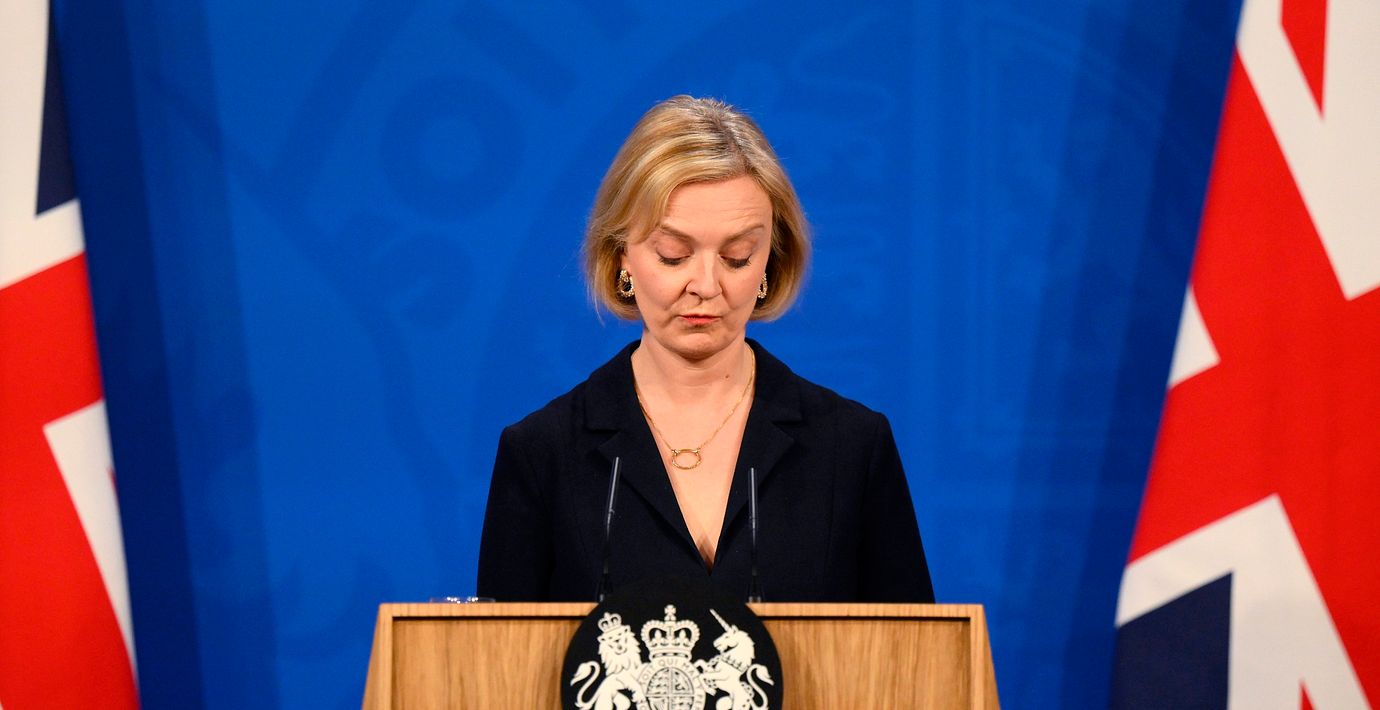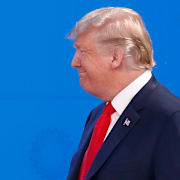
Strateger: Trump riskerar att gå i Liz Truss fotspår
Oron för att Donald Trump ska driva USA mot en egen version av Storbritanniens ”Truss-kris” ökar bland obligationsmarknadsstrateger. Tullar, skattesänkningar och avregleringar kan leda till en volatil dollar och rusande långräntor – likt hösten 2022 då premiärministern Liz Truss nya minibudget fick pundet att rasa och BOE att rycka in. Det menar flera strateger enligt CNBC.
Saxo Banks Althea Spinozzi menar att Trumps återkomst till det Vita huset kan ”formatera om USA:s obligationsmarknad på ett djupgående sätt”.
bakgrund
Budgetkrisen i Storbritannien 2022
Wikipedia (en)
In September and October 2022, the Conservative Party government led by newly appointed prime minister Liz Truss faced a credibility crisis. It was caused by the September 2022 mini-budget and a disorganised vote in the House of Commons over a parliamentary motion to ban fracking, ultimately resulting in the loss of support of Conservative members of parliament (MPs).
The mini-budget was a ministerial statement entitled "The Growth Plan" delivered by the Chancellor of the Exchequer, Kwasi Kwarteng, to the House of Commons on 23 September. It was received negatively by global financial markets and ultimately led to the dismissal of Kwarteng on 14 October. In the following days, Truss came under increasing pressure to reverse further elements of the mini-budget to satisfy the markets and, by 17 October, five Conservative MPs had called for her resignation. On 19 October, Suella Braverman, the Home Secretary, resigned over a breach of the Ministerial Code following a disagreement with Truss over immigration reform; her resignation letter was critical of the government.
On the evening of 19 October, MPs voted on a Labour Party motion to create time to debate a ban on fracking in the UK, which was opposed by the government. It was unclear whether the vote was being treated as a confidence vote by the government, which confused Conservative MPs. The confusion was compounded by speculation that Wendy Morton and Craig Whittaker, respectively the chief whip and deputy chief whip, had resigned, and by allegations, later refuted, that some Conservative MPs had been manhandled in the division lobby.
Truss resigned as prime minister on 25 October, having announced her intention to do so on 20 October. Rishi Sunak won the ensuing Conservative Party leadership election unopposed to become party leader and prime minister. Truss was in office for 49 days, a shorter duration than the total for any preceding UK prime minister.
Omni är politiskt obundna och oberoende. Vi strävar efter att ge fler perspektiv på nyheterna. Har du frågor eller synpunkter kring vår rapportering? Kontakta redaktionen



